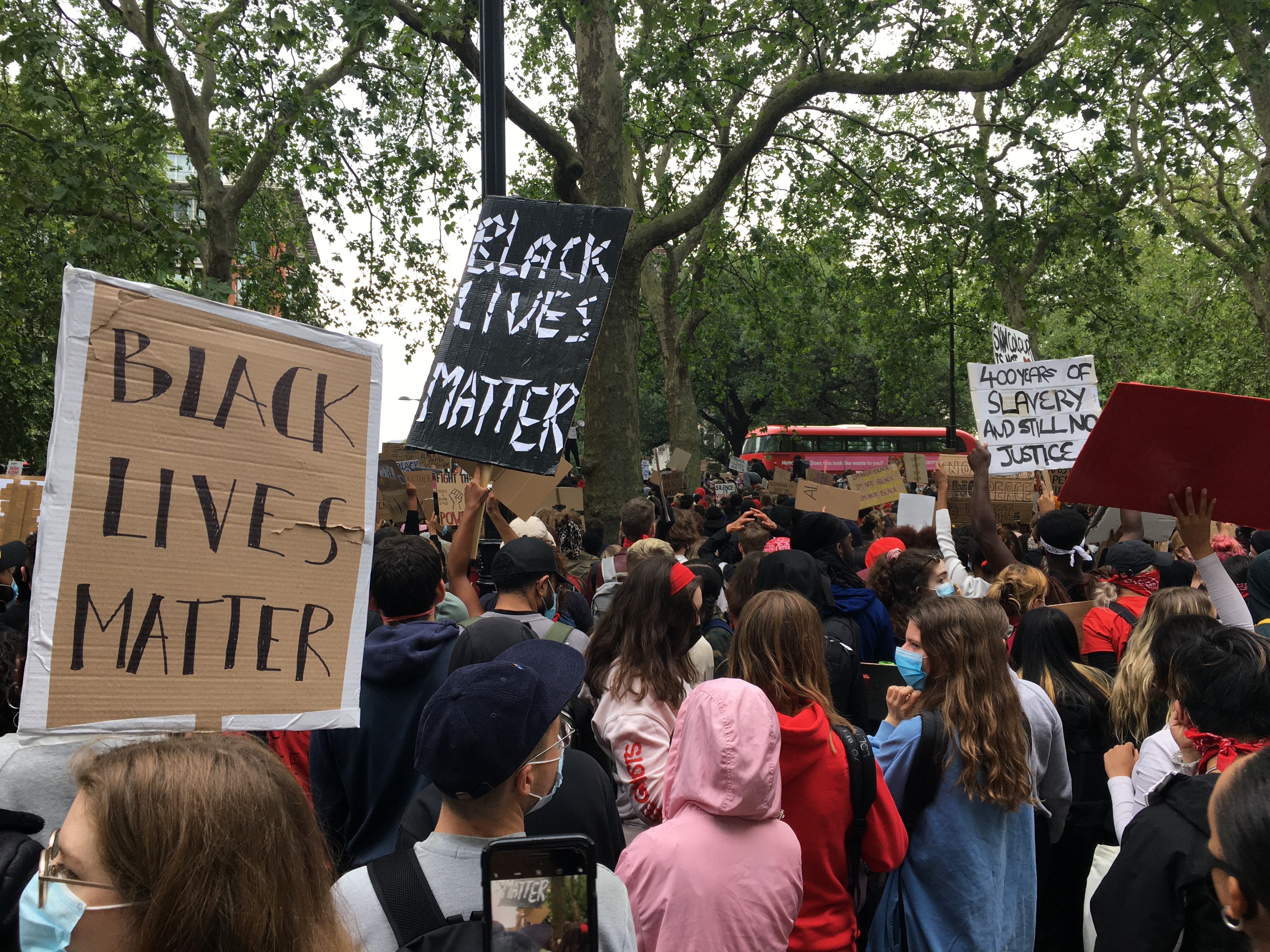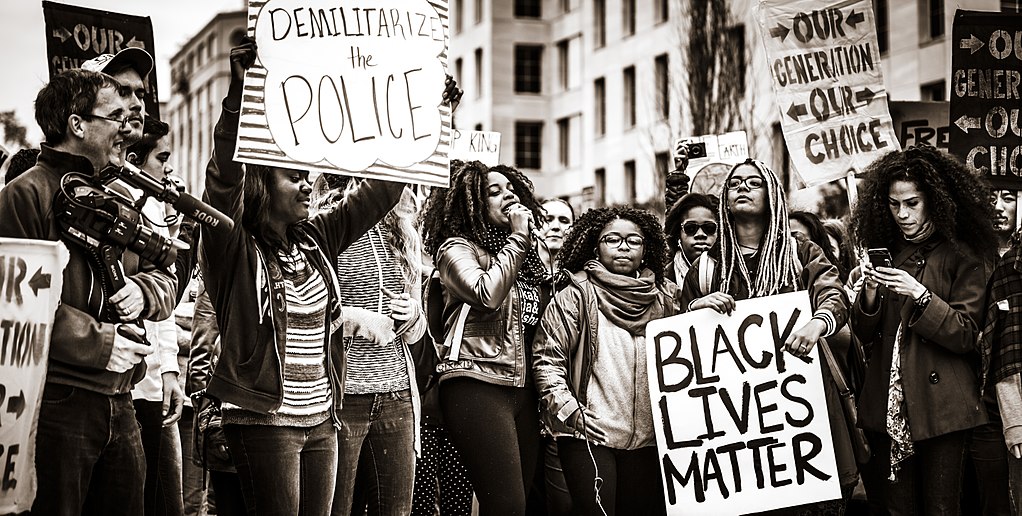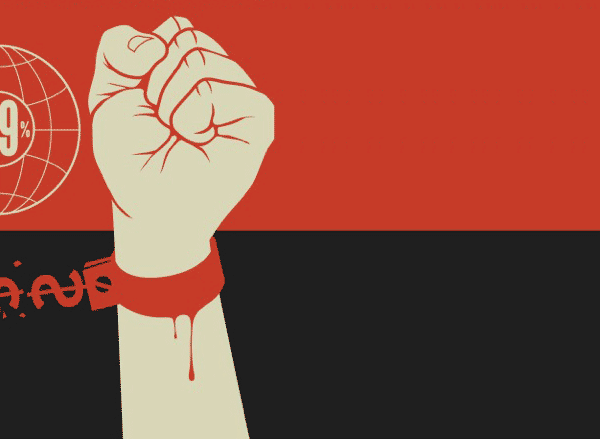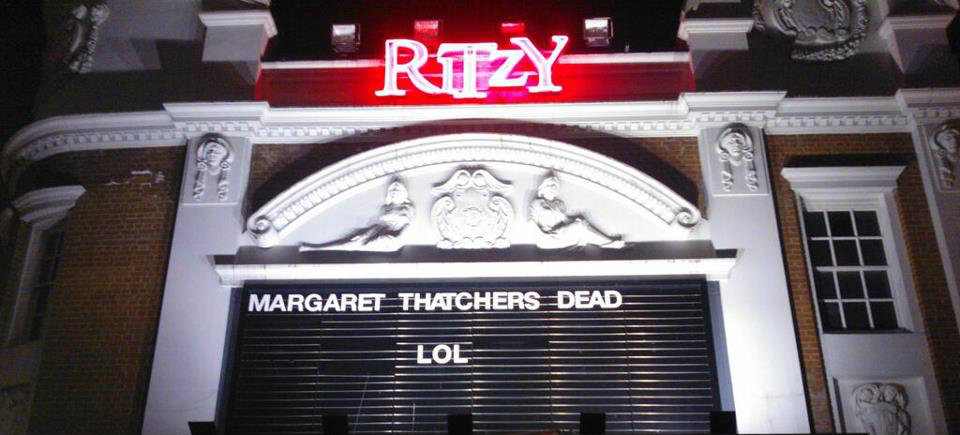Jacob Berkson, Plan C Brighton
In the June 21st episode of the ‘This American Life’ podcast, producer Bim Adewunmi asked, partly rhetorically, partly seriously, “why now?” Why is it that George Floyd’s death of all the thousands and thousands of police killings broke the camel’s back? Why was it the killing of George Floyd, and not any other, that brought white people out in huge numbers onto the street and made the establishment pretend that they weren’t racist? (okay Adewunmi didn’t put it like that, but I did detect a touch of cynicism in her reporting on corporate responses to #BLM). I think that it is a great question and I want to suggest an answer.
Obviously in the end, shit just happens. Sometimes the spark catches. Sometimes it doesn’t. This time though the tinder was certainly a lot drier. What dried out the kindling, it seems to me, is Covid 19 and the diametrically different responses from the powers that be and from the citizens. Let there be no vulgar suspense: the authorities lost control of the situation and didn’t protect the citizenry. The citizens, on the other hand, rapidly clubbed together to look after one another and in so doing took control of the situation. George Floyd was killed at a moment when citizens had created counter power on a massive scale and when the establishment’s power was at its lowest ebb. Black Lives Matter was a pre-existing, well established and well organised movement. It built on the ground work done by generations of black activists, a legacy which goes back to the earliest arrival of Africans into America. It meant that when Black Lives Matter took to the streets after the killing of George Floyd, not only with a powerful movement, they found themselves in a situation where their base of support had power. They have smashed through for now.
I need to unpack a little bit what I mean by power. Power is a product of people working together. Power is not the ability to get what you want, it’s the ability to do something. To do something is to create something. It is to make a change, to produce something new. That requires working with other people. If you are alone, nothing that you attempt will come off. It is partly because there are too many tasks, but that is merely a contingent problem. It is also necessary. One person cannot produce anything that has any stability. It will not last. To bring something new into the world is to create a new way of doing things. (Even the lone genius who turns clay into a sculpture all by herself, needs other people for that to be possible. You can only make a sculpture when there is an institution of sculpture making. That requires the cooperation of other people.) In some sense, it is to institute a new practice. It also means that you cannot often get what you want. But power isn’t getting what you want. It is instituting something. It will be outside of your control because other people are required to give the institution stability. The thing that you create together will have a life of its own.
To break from the Arendtian roots of this thought, somebody with a gun has power because they can force other people to do what they want. But they still need the other people. Most of us don’t have guns, we have to treat together and hold each other to account. It is only if we do that. It is only if we negotiate with each other and hold each other to what we say and do what we agree that we are able to institute something new. The last point is important. We have to create rules for ourselves. If what we say to each other is not truthful and what we promise each other not fulfilled, then we cannot create anything that lasts. It does not need to be grand and formal with procedures of consensus decision making, though that is one way to do it. It can simply be putting yourself forward in a group and saying, “I will do this” and then doing it. The act of saying “I will do this” is a promise. It creates an expectation that you will fulfil your promise. If it is said honestly, you are committing yourself by your words. It is by that process that we are able to do things. In so doing we create power.

In the vacuum left by the government’s response to Covid, citizens mobilised and organised to support one another. That working together to ensure that elderly neighbours got their medicines, that poor people had food, that one another were safe was also the creation of networks of counter power. It was precisely a process of people setting forward and committing themselves to do things and holding themselves to account in the eyes of their neighbours. People had to discuss together what the right way forward was. There were disagreements as well as agreements. The disagreements are just as important. They create compromise and negotiation. It meant that citizens were able to do things. They had created power.
Meanwhile, the government were doing nothing. They ceded ground to the alternative and in so doing lost some of their power. Precisely by doing nothing, they were exposed as powerless. In most of the Western world, when the government did respond with their usual disempowering top-down response, it was clear that their response was not aimed at protecting the citizenry. Their behaviour, at the very least, was tainted with the desire “to protect the economy” and to maintain their authority.
It’s important to put the protection of the economy in scare quotes. It has been one of the central myths of government that protecting the economy is a neutral policy. The myth goes that we are all part of the economy, and so we all need it protecting. Of course, is true that we are all part of the economy, but we are not all part of the economy in the same way. Protecting the economy means protecting investments. In other words, it protects the owners of capital. Most of us do not own capital. I am not saying it is bad policy, though I suspect it is. I don’t know whether or not, for example, letting banks go to the wall, would be bad for the workers, but preventing it is certainly much more directly a boon for those who have capital assets.
The response of the spontaneous mutual aid groups and the aims of those within them were not tainted in the same way. They were not aimed at “protecting the economy”, they were aimed at protecting each other. Meanwhile the mutual aid groups were doing just the opposite. When you are trying to do one thing and another person or organisation is working against you, you feel that clash. The experience of organising in your neighbourhood to protect each other whilst the government let the poor black folk keep society going go to the wall must have been revealing of the racism at the heart of the institution. The mutual aid groups also presented an alternative vision of how society might be organised. We participated in and experienced world in which we cared for each other. We participated in a politics that sought to include the most marginalised and to support one another. It is the antithesis of everything that the new right, who are politically dominant, is about.
The other important aspect was the government’s naked attempt and failure to reassert control. Organising together and taking responsibility requires paying attention to what is happening and thinking things through. It brings with it an understanding of the world. One of the central tricks of the powers that be has been the ability to control the narrative. The powers that be can, when we are not thinking, say this is how things are and will be believed, or, at any rate not be challenged. It allows them to tell the story of what is happening. This is important, because any set of happenings need describing in order to be understood. They can be described in many different ways. This is not a claim of relativism. People are deluded, sometimes they actively lie. They want to tell a story about happenings that suits them. What is the case though is that what is accepted as having happened, what is accepted as being the meaning of events, determines what is politically possible. A government that place the blame for child poverty on poor women for having children can cut free school meals. If child poverty is a consequence of our failure to protect each other, the government is going to have to cough up. Faced with an organised populace, no amount of ministers clapping for carers or Daily Mail articles about Maj Tom were going to fool people into thinking that the population and the establishment were one. The understanding of events was outside of establishment control.
When George Floyd was murdered, the thing that all black people knew was now known by everyone: the state does not have your interests at heart. The powers that be serve their own interests. You are expendable. Your life does not matter. The white majority also understood, through the experience of Covid, just how little poor people and black people meant to the government. We knew full well who the carers were, who the delivery drivers were, who were the people that were expected to serve in supermarkets and who had to clean the streets. We could see that their lives were not important to the powerful. We had also experienced practical solidarity. We knew how to support each other. We were angry and we were going to take to the streets. We also were going to laugh at their bullshit messaging. We knew what George Floyd’s death meant in a way we didn’t know what Trayvon Martin’s, Sean Rigg’s, Eric Garner’s, Babacar Gueye’s or Freddie Gray’s meant. As a citizenry, black and white, we also had power. They had lost control and we were going to assert our power. I think that’s why now.
As a coda, I think that the pitfall that is going to destroy the movement and allow the powers that be back into control is the far right. The far right are a tiny, but useful tool of the establishment. The new right, who are in power, are an openly racist bunch. Despite the fact that they are far to the right of most of the population, they have managed to return majorities and win elections. Not only that, their agenda is the mainstream agenda. They are both the right and the centre. It’s an impressive trick. They have been able to do it in part by magnifying the size, and thus the significance, of the far right. It’s most nakedly expressed in the politician’s canard, “some of my constituents have legitimate concerns about immigration”. The trick has been to both legitimise the racism (“concerns” is always prefaced with an unquestioned “legitimate”) and to make it seem as if the politicians are just giving in to the overwhelming public pressure to prevent migration. It creates a political world in which beating up on immigrants is unavoidable and any challenge to it radical.
The current move is to align the establishment and the far right over monuments to racists. The people who are physically defending statues (and occasionally pissing on them) are aligned with the authorities who have been removing them “for safekeeping”. It aligns the far right with the centre. It doesn’t do it in a way that makes the centre seem far right. Nobody is going to accuse Poole Council of breaching the cordon sanitaire by taking down their statue of Baden Powell. Nevertheless it’s exactly what they have done. The extreme right have their politics enacted by the establishment despite the extreme right being extremely unpopular. Not only does it enact far right politics, but it does it in a way that makes it seem sensible and normal. It gives over the centre ground of politics to the far right. It thus neutralises the antiracist majority by making them marginal.
There’s another aspect to it. Although the far right has been out at these protests, they are hugely insignificant on a numerical basis. Nevertheless they are so much of the story. We become so fixated on them. We find ourselves being drawn into arguments with them. We magnify their significance. They need their heads kicking in, but apart from that they need to be ignored. By fixating on the far right, we make them our target and although there politics are being enacted by the establishment, by making the skinheads the focus of our attention we uphold the illusion that there is a cordons sanitaire between Boris Johnson and Tommy Robinson. It allows the centre to be racist while simultaneously taking a knee.
It’s not surprising to me that the focus of the reporting has been on the confrontations with the far right. We would do well to ignore it and keep our eyes on the prize.
(Header Image: Millennials participating in a Black Lives Matter protest, 10 November 2015 – Johnny Silvercloud)



